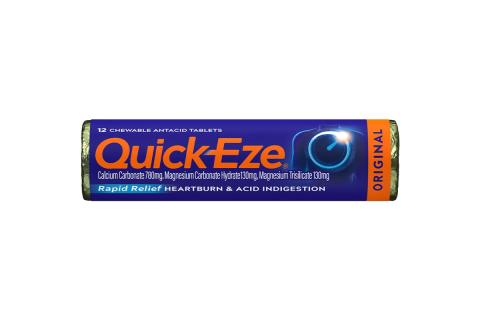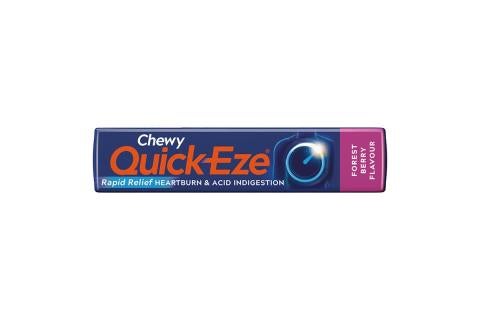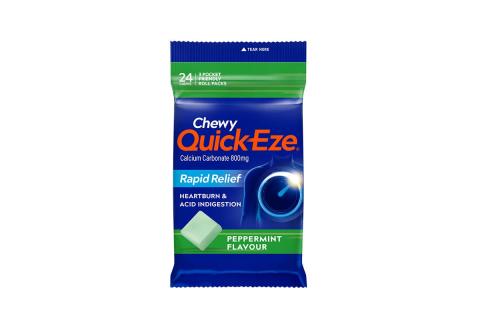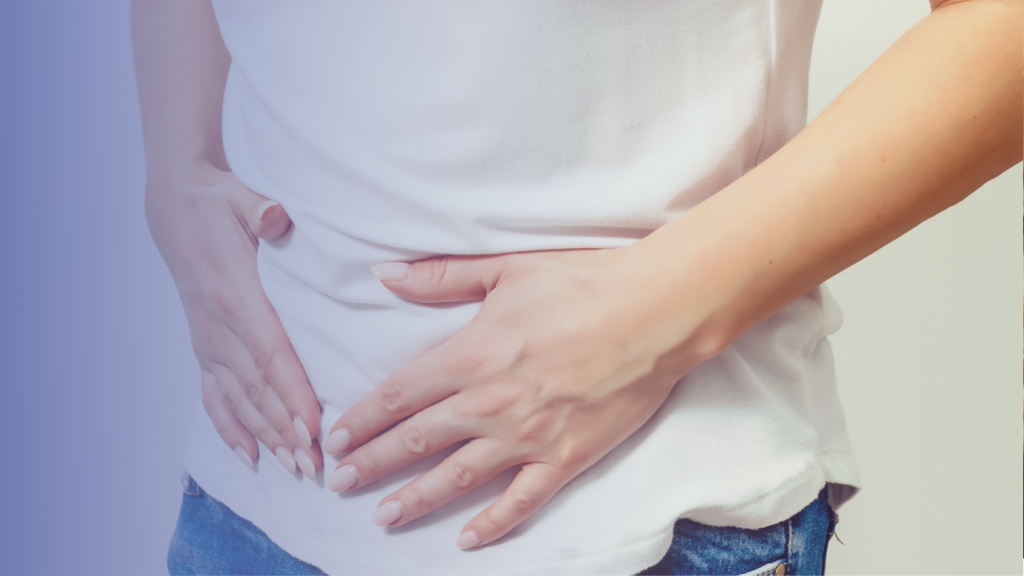Acid Reflux Foods to Avoid for a Happier Digestive System
Acid reflux is when some acid from your stomach passes through your Oesophagus (the tube between your stomach and mouth). This can cause a burning sensation in the throat and mouth and a burning feeling in the chest, known as heartburn, and can last anywhere between a few minutes to a few hours.
The symptoms of acid reflux can vary between individuals but typically include:
- A burning feeling in the chest (heartburn), usually after eating.
- Upper abdominal or chest pain
- Bitter or sour taste in the back of the throat
If you’re still unsure about your symptoms, we recommend reading Common Digestive Disorders: Recognising the Symptoms and Seeking Relief as well as getting in contact with your GP or specialist for further clarity.
Whether your symptoms align with those listed above or not, diet is typically a contributing factor when it comes to preventing symptoms. It is for this reason that we recommend reading on to see which foods may trigger acid reflux and which foods and medications could help you have temporary and long-term relief.
If you’re unsure that the symptoms you’re experiencing are connected to acid reflux, read our guide: Common Digestive Disorders: Recognising the Symptoms and Seeking Relief for more information.
Foods to stay away from with Heartburn
There are several foods that are commonly believed to trigger heartburn.
What these acid reflux trigger foods have in common is that they cause the Oesophageal sphincter to relax, which delays the digestive process and causes food to sit in the stomach longer than it should. If you commonly experience the symptoms of heartburn, we recommend considering these foods to avoid.i
Fatty and fried foods
This probably doesn’t come as a surprise, but fried and fatty foods are one of the worst foods for acid refluxii. This is because fatty foods take longer to digest than low-fat foods which delays the stomach acids emptying and thus increases the chances of reflux.
Some fatty foods that may trigger acid reflux include (but are not limited to):
- Fatty meats such as bacon and sausage
- Butter or cream
- Foods baked or fried using saturated fats (foods like hot chips, chicken strips, fried fish)
- Cheese
- Oils from coconuts, palm fruits, or palm kernels
Spicy Foods
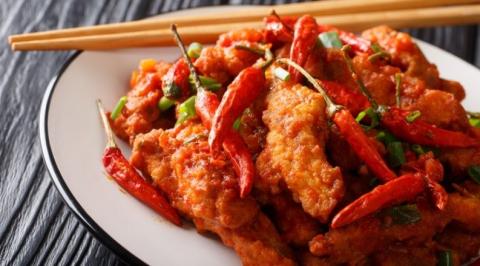
When we think of heartburn, we often think of spicy foods being the culprit! Spicy foods are often linked to acid reflux because most contain the chemical capsaicin which can reduce the speed of digestion and increase the chance of reflux. iii
Common spicy foods that have commonly been linked to heartburn include:
- Spicy stews and soups (like Tom Yum and Laksa)
- Ramen
- Chilli topped pizzas.
- Hot sauce chicken wings
Acidic Fruits
Studies have found that certain acidic fruits have been linked to people experiencing the symptoms of heartburn. Like fatty and spicy foods, some acidic foods have been found to relax the Oesophagus sphincter and worsen symptoms.iv
Acidic foods and drinks that may trigger acid reflux include:
- Orange
- Grapefruit
- Lemon
- Tomato
- Citrus fruit juices
Drinks that are alcoholic, carbonated or caffeinated
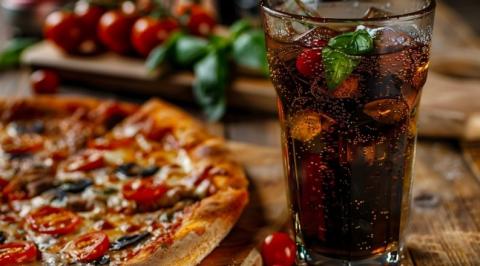
In addition to citrus fruit drinks, carbonated drinks have been linked to triggering acid reflux.
Drinks that you may want to reduce to avoid acid reflux include:
- Beer and cider
- Wine and seltzers
- Coffee and tea (particularly paired with full cream milk)
- Soft drinks and carbonated mineral water
Chocolate or Peppermint
Whilst dark chocolate could give us a boost in serotonin, it has also been linked to causing reflux. Serotonin can cause the lower oesophageal sphincter to relax and cause an increased chance of acid reflux. Peppermint, and peppermint tea in particular, has also been found to relax the oesophageal sphincter leading to reflux.
Acid reflux foods to avoid containing chocolate or peppermint include:
- Milk and dark chocolate
- Hot chocolate
- Peppermint tea
- Peppermint chocolates
Certain medications and supplements
Certain medicines have been found to irritate the oesophagus and lead to heartburn.
Research has discovered that certain medications may have temporary or prolonged impact on the health of the oesophagus. If you have concerns about the effects of medications or supplements on your digestive health, please see discuss this with your GP. Additionally, if you’re planning on taking Quick-Eze® alongside other medications, make sure you chat with your healthcare professional before doing so.
Medications and supplements that have been linked to worsening reflux include aspirin and other pain relievers.
Do I need to cut out foods that trigger acid reflux completely?
Whilst avoiding trigger foods is recommended for reducing the chances of acid reflux, completely avoiding many of these foods and drinks can be fairly unrealistic for most people.
Like most dietary recommendations, when considering which acid reflux foods to avoid or reduce, moderation is key.
If you suffer from reflux it may be a good idea to keep a food diary to help you identify which exact foods are the worst foods for acid reflux for you personally. As much of the medical research has concluded, the link between reflux and diet isn’t conclusive. Whilst there are some foods that more commonly cause acid reflux, this won’t be the case for every person and in every instance.
In addition to foods that trigger acid reflux, what other things cause acid reflux?
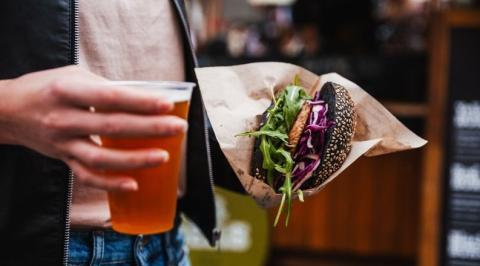
For some people who suffer from reflux and heartburn, eliminating trigger foods might not be enough. Digestive health problems can be influenced by a number of factors.
Some of the common causes of acid reflux include:
- Overeating: Over-filling your stomach can slow down digestion and cause stomach acid rise up the oesophagus.
- Smoking: Smoking has been linked with lowering oesophageal sphincter pressure, slowing digestion and thus causing heartburn and reflux.
- Eating habits: How you eat can affect your digestion and spur on acid reflux. Eating whilst lying down or close to bedtime can cause reflux. Eating too quickly has also been believed to cause reflux symptoms.
What are some remedies for acid reflux?
If you’re looking for rapid relief for heartburn, antacids like Quick-Eze® are an effective option.
Antacids contain active ingredients such as Calcium carbonate, magnesium carbonate hydrate and aluminium hydroxide which all help neutralise stomach acids. Antacids are a popular relief choice because they are fast acting and can be purchased over the counter without a prescription.
Whilst antacids like Quick-Eze® provide rapid relief for heartburn, relief is short-term and not an overall remedy for more chronic conditions. If your symptoms are frequent, please speak to your doctor or specialist for a professional assessment.
For reflux and heartburn relief outside of antiacids, explore the treatment options in this guide.
iii https://www.gerdhelp.com/blog/gerd-diet-what-foods-to-limit-or-avoid
Frequently Asked Questions about acid reflux
What to drink for acid reflux?
For those experiencing acid reflux, it's best to avoid alcohol, juices, and caffeine and opt for drinks that are less likely to worsen the symptoms. These include water, herbal teas (like chamomile or ginger tea), non-citrus juices (such as apple or pear juice), and low-fat milk.
What foods help with acid reflux?
Foods that are less likely to trigger acid reflux and heartburn include non-citrus fruits like bananas and apples, vegetables, whole grains and non-fat or low-fat dairy products.v
What foods cause acid reflux?
Certain foods can trigger acid reflux in some people. These foods include spicy foods, citrus fruits and juices, tomato-based products, chocolate, caffeine, fatty or fried foods, garlic, onions, mint, and alcohol.
